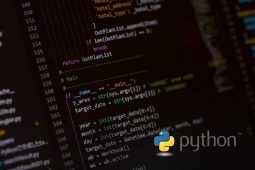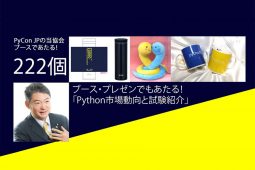In Vol.1, I told you the point-system in a “highly skilled professionals” visa and how is professional certification like in Japan.
If you didn’t read Vol.1, please see How to acquire a “highly skilled professional” visa in Japan – Vol.1.
What kind of certification should I acquire?
Due to the trust Japanese society has in certifications, many employers are more than willing to sponsor the examination fees involved in pursuing relevant certifications. If Japanese isn’t your native language, Japanese language is one of the most essential aspects employers will look into. Beyond that, it’ll come down to the kind of job you’re pursuing, while focusing more on those managed by the government.
As a software developer pursuing a “highly skilled professionals” visa, I went with exams held by the Information-technology Promotion Agency aka IPA, which is under the jurisdiction of the Ministry of Economy, Trade and Industry. More specifically, Information Security Management Examination and Fundamental Information Technology Engineer Examination.
The reasons for picking these 2 are because they are computer based tests (CBTs). Other examinations contain both multiple choices and subjective questions, while some even have an essay section. I wasn’t feeling comfortable writing in Japanese by pen, so I avoided the others. IT Passport is also a computer based test, but it isn’t recognized by the Immigration Services Agency of Japan.
While I have avoided them because they were not computer based, should you have interest in giving other examinations that include subjective or essay sections a try, below is a list of other available examinations.
- Applied Information Technology Engineer
Consists of 2 sections: multiple choices, subjective - Information Technology Strategist
Consists of 4 sections: 2 multiple choices, subjective and essay - Systems Architect
Consists of 4 sections: 2 multiple choices, subjective and essay - Project Manager
Consists of 4 sections: 2 multiple choices, subjective and essay - Network Specialist
Consists of 4 sections: 2 multiple choices, 2 subjective - Database Specialist
Consists of 4 sections: 2 multiple choices, 2 subjective - Embedded Systems Specialist
Consists of 4 sections: 2 multiple choices, 2 subjective - Information Technology Service Manager
Consists of 4 sections: 2 multiple choices, subjective and essay - Systems Auditor
Consists of 4 sections: 2 multiple choices, subjective and essay - Registered Information Security Specialist
Consists of 4 sections: 2 multiple choices, 2 subjective
Other than Japanese certification, Immigration Services Agency of Japan also accepts specific certifications from some countries like China, Philippines, Vietnam, Myanmar, Taiwan, Malaysia, Thailand, Mongolia, Bangladesh, Singapore and South Korea. It is probably a good idea to check the latest information about the accepted IT certifications on Immigration Services Agency of Japan’s bulletin board (in Japanese).
Are the examinations difficult?
Both the exams I’ve taken were all multiple choices and are split into 2 sections. More theory based for one section and the other section is more practical case-study based questions. The scope is also pretty big where it covers 3 major fields which are technology, management and strategy.
For me personally, the theory section was more difficult as most questions were about the definition of technical terms and everything was in Japanese. Now, it’s probably already expected at this point, but Japanese language proficiency is still very important. My preparations for taking these examinations are doing past and forecasted questions available for free online.
While having a full time job, I went through the questions whenever I had free time as examination preparation. The first examination I took was Information Security Management and I only started the preparation after I applied to sit for the exam which was roughly a month from the date of reservation. Fairly enough, a month of study during my free time wasn’t enough to pass the exam. I retook the exam 5 months later so I would say I prepared for this exam for 2 months during my free time where I spent about an hour each practice session.
As for Fundamental Information Technology Engineer, this exam was within my field of expertise so I spent less than a month of preparation for it by doing the practice questions linked above. I believe the total hours spent on actual preparations by doing the practice questions was no more than 100 hours since I already have the fundamental knowledge albeit in English.
According to IPA, the difficulty level is at a level 2 out of a maximum of 4 for both of the examinations I’ve taken. The passing rate ranges from 40% to 60% for Information Security Management, while Fundamental Information Technology Engineer has a passing rate of around 20% to 30%. Do note that Japanese also take these examinations, so it can be seen that professional aspects are well tested here.
Now, if you have read this far, you may be in the same situation I was in. At the end of the day, these were my experiences and based on my personal opinion. I hope this provides you some insights, so you can make more informed decisions for your career advancement.








